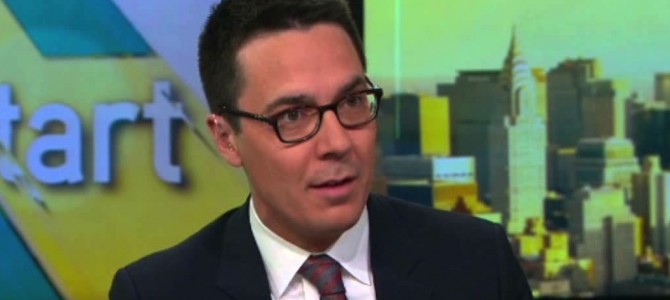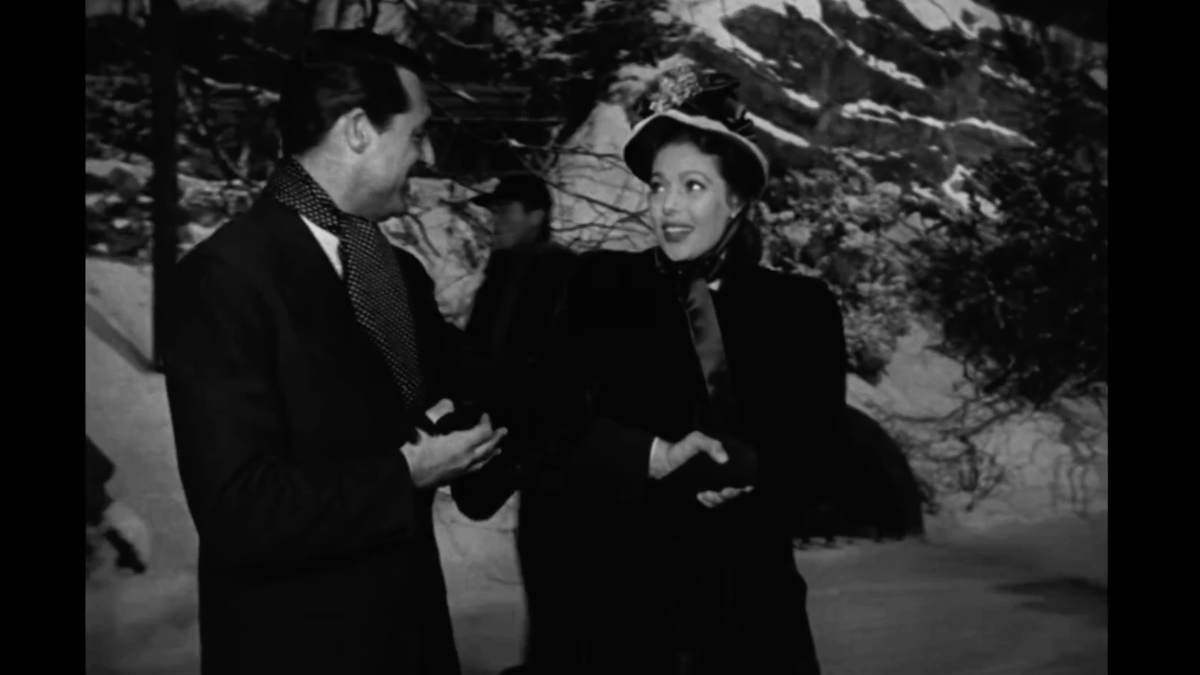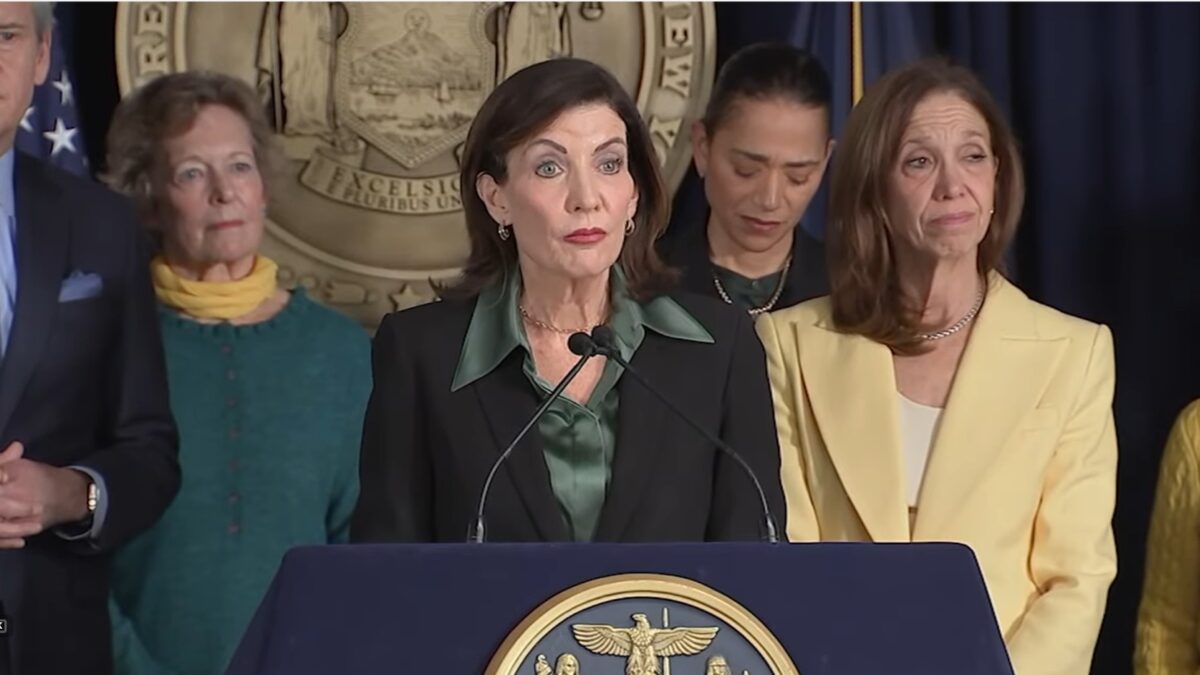
Shortly after the Oregon shooting last week, the political and media classes quickly began their ritualistic discussion of limitations on the 2nd Amendment-protected right to keep and bear arms. But the discussion among the local community in southern Oregon was noticeably different, particularly on Facebook.
Joshua Friedlein shared brief thoughts that went viral. They were shared nearly 10,000 times the day of the shooting (they’ve now been shared more than 80,000 times on Facebook):

But politics is the way many people in the political and media classes process tragedy. Back in May, an Amtrak train derailed. The same political and media elites calling for gun control now also saw government action as the solution to that tragedy. They almost immediately blamed the crash on, well, Republicans, who they believed had caused it by only subsidizing the corporation with $1 billion in funding each year and not more. That was a silly claim even before preliminary reports suggested human error was the cause of the crash and not any underlying problem with infrastructure. The story highlights the left’s “theodicy of federal government” — a belief that the federal government can somehow prevent bad things from happening to people.
Which brings us to late on Friday afternoon, when Jeb Bush was speaking at a forum in South Carolina. The moderator asked Bush about whether the Second Amendment protects individual rights or just the rights of a militia.
Bush responded that the right to keep and bear arms is an individual right and that protection of those rights is best handled at the state level. He said Florida’s concealed weapon permits are widely used but that other states might choose to handle permits differently. Either way, the right to bear arms should not be infringed at the local, state or federal law, he said.
Bush then pointed out that some people have a belief that rule-making must be rushed out in the face of tragedy. These rushes to judgment end up doing nothing to fix the actual tragedy or prevent similar tragedies and that we avoid the complexity of human nature and the proper role of government:
That whenever you see a tragedy take place, the impulse in the political system, most, more often than at the federal level, but also at the state level, is to ‘do something,’ right? And what we end up doing lots of times is we create rules on the 99.999 percent of human activity that had nothing to do with the tragedy that forced the conversation about doing something. And we’re taking people’s rights away each time we do that, and we’re not necessarily focusing on the real challenge. So if we have people that are mentally ill, to the point where they go into the vortex and they don’t come out and they’re hateful, and they’re in isolation, and they kill people. The impulse in Washington is take personal rights away from the rest of us. And it won’t solve the problem of this tragedy that is just heartbreaking to see. Maybe we oughtta be more connected in our communities. Maybe we oughtta have greater awareness of the mental health challenges that exist all across this country. Maybe there’s a better way to deal with this than taking people’s human, you know, personal liberty away every time we, you know, kind of require people to do something.
Now, a smart reporter covering this event would see a contrast with President Obama’s theodicy of federal government — his view that we need to politicize the shooting that terrorized Joshua Friedlein’s campus — Joshua Friedlein and his community’s views be damned.
Obama wants to talk about gun control again. Bush is saying that the federal government can’t prevent tragedy and certainly can’t prevent it without violating our liberty.
This is a really substantive difference of opinion, one that the media should highlight at this very moment. Bush articulated the common conservative understanding that evil exists in the heart of every man and that this human condition isn’t fixed but in fact can be exacerbated by a large centralized government.
Yes, it’s a very different view than the views held by most reporters and most progressives. But outside of newsrooms and Democratic clubs, it’s a view that is downright common in American life.
Anyway, back to the tape. The moderator discussed the absence of religion in schools, but said that prayer vigils are the first instinct of communities after tragedies. He said that if religion were permitted in schools more, maybe we wouldn’t have tragedies requiring prayer vigils.
Bush didn’t really respond to that stream of thought but said, again, that we live in difficult times and we need to reconnect ourselves to our communities rather than respond to a crisis with the impulse to take government action, particularly when that government action isn’t necessarily the right response.
OK, so here’s how Ryan Lizza, who is affiliated with The New Yorker and CNN, characterized this difference of belief:

Lizza’s deceptively edited quote did what it was supposed to do and it spread throughout a media more interested in creating/finding gaffes than actually hosting civil discussions about major policy issues of the day.
Allahpundit put it well:
That makes it sound like someone brought up the shooting and Bush responded by scratching his balls, belching, and replying with a sanitized version of “sh*t happens” for polite company. Jeb Bush is a callous monster. After conservatives started pounding away at Lizza, he eventually responded with this fuller transcript — but not before the “stuff happens” nontroversy had been picked up across mass media and, within an hour of it spreading, had even been presented to Obama for comment at his press conference. When the media wants to make a narrative happen, especially when a Republican presidential candidate is bearing the brunt of that narrative, it can gather and spin like a Category Five hurricane.
Yes, to the average liberal journalist, it seems that the conservative belief that government isn’t a magical god that can cure the human heart is the equivalent of \_(ツ)_/¯.
Indeed, the Washington Post went with the headline “When Asked About School Shootings, Jeb Bush Says ‘Stuff Happens.’” Yes, they updated that headline (they seem to be constantly updating headlines to fix errors over there).
The New York Times began their piece with a curious verb choice by saying, “Jeb Bush invited a firestorm on Friday by saying that ‘stuff happens’…”
Most everyone groupthinked their way to roughly the same thoughtless, gotcha! analysis as Lizza. The examples are too numerous to catalogue, sadly. Not everyone, thankfully. A special shout out should be given to The Guardian’s Ben Jacobs, who early on put Lizza’s two-word quote in slightly more context, the Washington Post’s Chris Cillizza who noted that the Lizza interpretation was not accurate, Jonathan Chait’s condemnation of the false interpretation in New York magazine, and a few others.
Perhaps the most embarrassing thing was that within moments a reporter teed up a question for President Obama to respond to the deceptively edited phrase. He did what you expected with the perfectly teed-up question. Imagine, instead, if the reporter class was smart enough or even simply non-hacky enough to understand the philosophical debate in play and challenged Obama on his call for federal action in light of Bush’s comments. They were too busy following his category error chart-making orders, it seems. (Vox is one thing. Et tu, CNN?)
Lizza has struggled with accurately conveying quotes of people with whom he has differences previously (see, for example, “A Journalism Lesson for the New Yorker“). But when he should have apologized for how his two-word deceptive edit of the quote was interpreted in a manner near the opposite of what Bush was actually saying, he instead dug in. At the very least this is a lesson about whether to believe Lizza’s interpretation of events.
But worse than that, it shows how far too many political media are like sheep when it comes to politics — easily led into groupthink and not terribly well educated about a good portion of the candidates and voters they are expected to understand.
When it comes to the question of whether to rush into government programs with questionable results and worrisome unintended consequences, we need a media that sees more than one side to the question.









